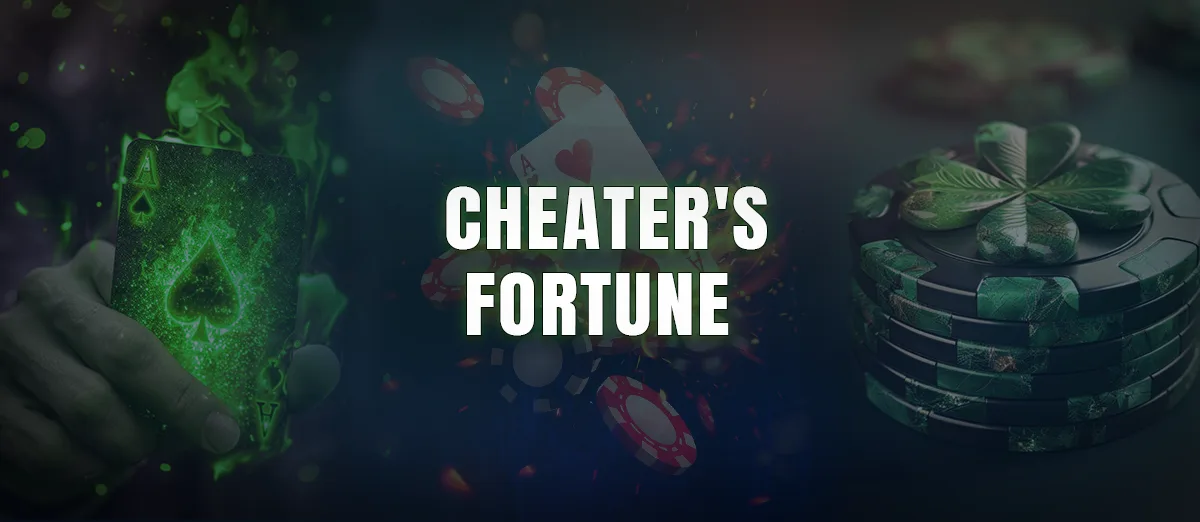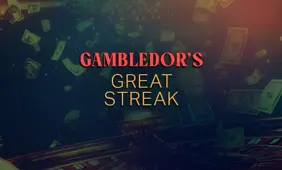R. Paul Wilson On: The Risks and Rewards of Card Cheating

Cheating at cards through sleight of hand is a high-risk endeavor, where there's often a fine line between taking a bad beating and receiving a harsh beating. Nobody enjoys being cheated, yet I know several friends who have cheated in card games, some trying to defeat the casino and others striving to beat fellow players.
While I don't condone these actions, I find them an endless source of fascinating and sometimes amusing stories. Playing with fire is sure to result in a few burns, and even the most adept or skillful card mechanics can find themselves thwarted by the unpredictable hand of fate.
Cheating from the outside, particularly when working alone (known as working "single-o"), is fraught with dangers, prompting cheaters to invest significant time and effort into perfecting invisible techniques to address specific challenges within a game. One common cheating scheme is “holding out”, involves stealing cards during play and later reintroducing them to gain a substantial advantage.
The High Stakes of Cheating
While I've observed many expert magicians demonstrate or employ such techniques, a professional cheater forgoes the flair of a performer for the relative safety of fail-safe methods that remain undetectable, even under close scrutiny by a zoomed-in camera. However, these methods can still exhibit other tells, even if a palmed card goes unnoticed or the act of stealing remains unsuspected.
Consider the crooked rounder who could skilfully palm out and return cards while cleverly concealing one from the other players. He would lay his hand palm down on the green baize, fingers slightly spread, to dispel any suspicion of cheating or deception. This approach is indeed a clever solution and, if held momentarily, would rarely attract a second glance. In fact, this interim position is strategically used to allow for the dealing and checking of cards, with the option to discard the palmed card if the forthcoming hand isn't advantageous, thus limiting exposure and reducing the risk of being caught with a short deck.
Unfortunately, over time, this cheater's discipline waned, and he began waiting for several hands for a chance to use his concealed card, his hand seemingly glued to the table all the while. Alert security, guided by a world-class card mechanic, focused their cameras on him and were soon laughing like hyenas as the cheater cycled through several poker hands with his left hand while his right remained flat and immobile. He must have had an exceptional card hidden because even when he ordered a sandwich and turned to take a bite, that hand never budged! In fact, after being arrested and shown the video footage, the cheater had to admit he had literally overplayed his hand!
A more cunning approach might be to slip the card into your pocket and wait for the ideal moment to use it, but this strategy comes with its own risks. An old-timer once shared a story about a friend who had an ace hidden in his jacket pocket during a game of seven-card stud. As his hand developed, he realized the ace would complete the best possible hand in a highly competitive, lucrative pot. So, during the penultimate round of betting, he discreetly palmed the card and awaited his final (face-down) card, seamlessly swapping it in before incorporating it into his hand.
Immediately, he sensed suspicion from another player who asked, "Did that come special fucking delivery?" Baffled, the cheater feigned ignorance until he looked down and noticed that the card he had just palmed now sported a postage stamp on the back! It turned out the card had picked up the loose stamp in his pocket before he retrieved it!
A Tale of Misplaced Cards and Misplaced Blame
Even under the best of circumstances, a cheater may find themselves in a precarious position with one or more cards concealed on their person, especially if a player demands the deck be counted down or a new dealer arrives unexpectedly with a fresh deck, necessitating that the old cards be counted and sorted by the outgoing dealer.
In such scenarios, a common tactic is to discreetly discard the palmed card under the table to the floor, so when the deck is found to be short, the errant card is quickly discovered and, one hopes, assumed to have simply fallen by accident. One cheater found himself in this exact predicament and did precisely as he had been taught, flicking the card away from his lap as the deck was being counted. However, due to a sudden rush of adrenaline, he flipped it a bit too vigorously, and the card sailed under the table to land in another player's lap!
Fortunately for the cheater, the card was so light that the other player didn't notice until his immediate neighbor looked down and saw the missing card, naturally concluding that this innocent player had been cheating! The actual cheat watched in horror as the wrongly accused was dragged to the floor and beaten, seizing the moment to quickly make his exit and seek a new line of work.
Luck, Signals, and Deck Switches
While filming an episode of 'The Real Hustle,' I was tasked with executing multiple deck switches, a tactic employed to keep myself and Alex in the game while utilising other cheating strategies to secure an unfair advantage. One evening, we were in a grand London townhouse, secretly outfitted with cameras, engaging a group of players oblivious to the fact that they were being filmed or cheated.
The scam we were showcasing involved signaling, where two or more players relay information about the cards they've been dealt or even other players' hands under certain conditions. This can provide a significant edge, but it's not foolproof, and if luck favored the marks, I would introduce a deck switch to tip the chip balance in our favor, allowing us to continue filming and hopefully capture a substantial swing with the actual scam we hoped to demonstrate.
That night, however, those gentlemen were exceptionally fortunate. After three deck switches—typically executed to clear the table rather than just keep us competitive—I became slightly negligent with the fourth cooler and inadvertently left a card in my pocket from the duplicate deck. Consequently, after dealing, I didn't receive the hand I anticipated. Upon discovering a leftover card in my pocket, I realized that Alex, whose chip stack I was attempting to boost, was on the brink of a significant loss if he proceeded with the current bet.
In a moment meant to showcase stealthy signalling, I resorted to a loud cough to capture Alex's attention, then conveyed a dire warning through a shake of my head and a look of impending doom, signalling him to fold. He got the message, and we narrowly escaped detection, though the incident nearly alerted the other players and appeared comical when reviewing the footage later!
Fortunately, the rest of the game swung in our favor, and we managed to signal our way into the lead without being caught. This episode added yet another chapter to why I often referred to us as "the gang who couldn't cheat straight." I have other stories, both personal and second-hand, that all seem to underscore the notion that cheaters never prosper in the long run.





Review this Blog
Leave a Comment
User Comments
comments for R. Paul Wilson On: The Risks and Rewards of Card Cheating